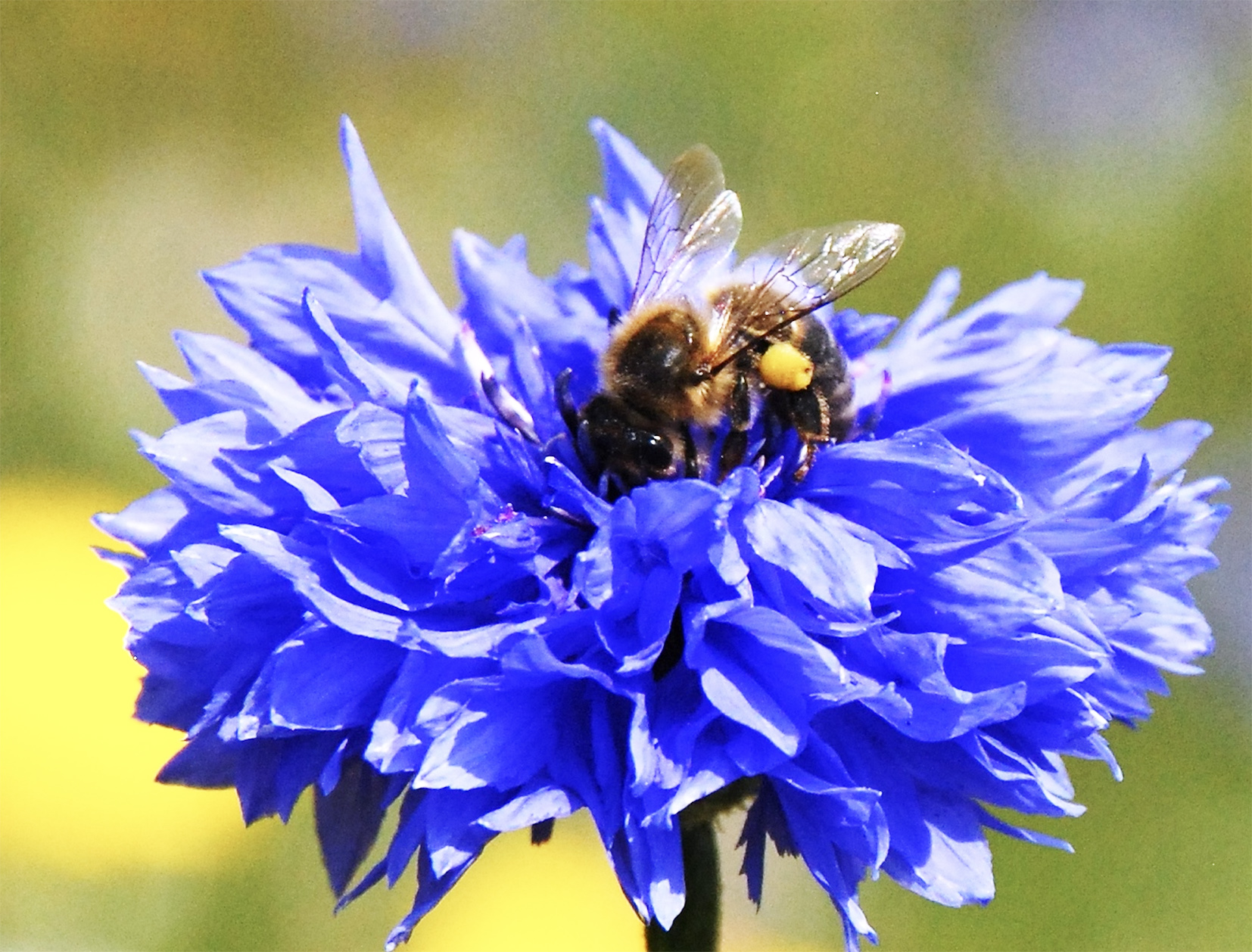World Bee Day 2023
...not to be confused with a yet-to-be-announced day to celebrate the bidet..World Bee Day serves as a reminder that bees are crucial to our food supply and need our love and protection

It's World Bee Day on 20 May 2023 so in their honour plant lavender in a pot or in your garden, or put a bee hotel outside for these hardworking pollinators. Picture courtesy of Seedball/Annabel James
We all know bees are responsible for pollinating many of the world's food crops, yet they continue to face numerous threats including habitat loss, disease, pesticide use that overall nightmare for all of us, climate change.
According to a United Nations report, over 40 per cent of insect pollinators, including bees, are at risk of extinction in the next two decades.
There are though simple steps everyone can take to help bees, says Kelly Martin of gardening website Urban Garden Gal: 'You don’t need a large garden to help your local bee population. You can grow flowers in containers, plant a flowering tree or replace part of your lawn with clover to give bees a valuable source of food.'
Bees are active from early spring to late autumn, so choose plants that bloom at different times of the year.
Place shallow dishes of water with rocks around your garden for thirsty bees to drink from.
Support local beekeepers by buying their honey, beeswax and other bee products.
Avoid using pesticides and chemical fertilisers which can harm bees and other pollinators. Instead, try using natural pest control methods and organic fertilisers to keep your plants healthy and bee-friendly.
Not all bees are social creatures that live in hives. Some are solitary and nest in the ground or in crevices, so provide nesting places such as bee hotels or leave a small patch of bare soil in your garden for the bees to nest.
Top 5 bee friendly plants
Lavender: Lavender is a popular choice among beekeepers and gardeners because it provides bees with a continuous source of nectar from late spring until summer.
Sunflowers: Sunflowers are another favourite of bees. Their large flowers are rich in nectar and pollen, and their bright yellow petals make them easy for bees to spot.
Coneflowers: These tall, colourful flowers are drought tolerant and attract a variety of pollinators including bees and butterflies.
Borage: Borage is a fast growing annual herb that produces an abundance of blue, star-shaped flowers that are highly attractive to bees.
Wildflowers: Planting a mix of wildflowers in your garden is a great way to provide bees with a diverse range of nectar and pollen sources. Bees are attracted to many different wildflowers, including poppies, clover, and cornflowers.
For more info